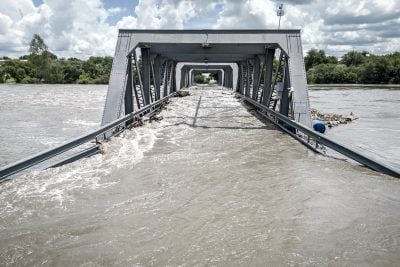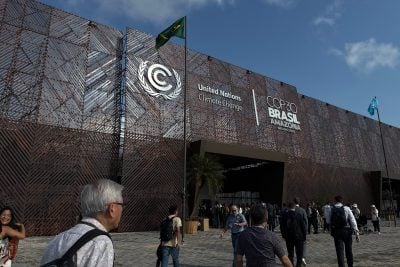Kenya’s President Ruto put the stress firmly on the enormous opportunities created for Africa by climate change as he launched the Africa Climate Summit today in Nairobi.
Taking one example, he illustrated the potential for Africa of adding value to the mineral resources required for the transition to cleaner energy, which it currently exports largely as unrefined raw materials.
“By 2025, the mining of battery-critical critical minerals – nickel, lithium, cobalt – is estimated to generate some $11bn in value. However, if we take the next step and engage in value-added activities like refining these minerals into industrial-grade metals, that value could quadruple to $50bn. And if we consider the end-to-end value chain for electric vehicles, including the battery pack and all other components, the market skyrockets to an astonishing $7 trillion,” he told delegates.
This inaugural Africa Climate Summit is taking place at Nairobi’s Kenyatta International Convention Centre, with some 20 African heads of state and 20,000 delegates from around the world expected to attend. Its focus will be on the increasingly urgent need to address climate change, both globally and in Africa. The organisers anticipate hundreds of millions of dollars in deals to be struck over its three days, with commitments, pledges and outcomes expected to be included in a final Nairobi Declaration.
‘Unparalleled opportunities’
In his welcoming speech, President Ruto stressed the “unparalleled opportunities” that climate change holds for African economies, declaring that “Africa holds the key to decarbonising the world economy.”
It is time to see climate change through the “opportunity lens” for Africa, he said.
He pointed to Africa’s capacity to expand food production through its possession of two-thirds of the world’s unused arable land using “restorative agriculture” and indigenous know-how, along with the possibility of monetising its massive carbon sinks to offset C02 emissions elsewhere.
“We have the carbon sink that serves the world, cleans our environment, acts as sequestration of carbon that is produced by others – but we get nothing for it. It’s not anywhere in our balance sheet… The day we put our whole assets in our balance sheet, you will know we are a very wealthy continent.”
He also asserted Africa’s wind and solar resources could power its industrial development, making it “a green industrial hub that helps other regions”.
Kenya, he said, could serve as a good example: “Our national grid currently acts at 3GW with 93% of that power being renewable. Our ambition is audacious yet achievable: 100% renewable by 2030, and a 100GW grid entirely renewable by 2040.”
Africa is ideal destination for green investment
The president argued that building African prosperity on renewable energy was not an “abstract proposition” but a practical possibility: he said that the examples he had used were “pragmatic routes” for Africa to grow and excel in the world economy.
He conceded that “a lot needs to happen” before this becomes a reality but, brushing aside arguments that pitted North against South in the climate debate, he declared that Africa could be an ideal destination for the “trillions of dollars seeking green opportunities”.
“Over the next few days,” he concluded, “I have no doubt that African leaders seated here, and our friends from elsewhere, will be open, honest, and direct about what we can commit, what we can bring to bring to the table and the type of collaboration we need from our global partners.
“My call to everyone present in this historic summit is for us to work together and converge our efforts on African priorities… Let us imagine a pathway for different financial structures that can deliver on Africa’s goals.”
Related articles
Want to continue reading? Subscribe today.
You've read all your free articles for this month! Subscribe now to enjoy full access to our content.
Digital Monthly
£8.00 / month
Receive full unlimited access to our articles, opinions, podcasts and more.
Digital Yearly
£70.00 / year
Our best value offer - save £26 and gain access to all of our digital content for an entire year!

 Sign in with Google
Sign in with Google 



